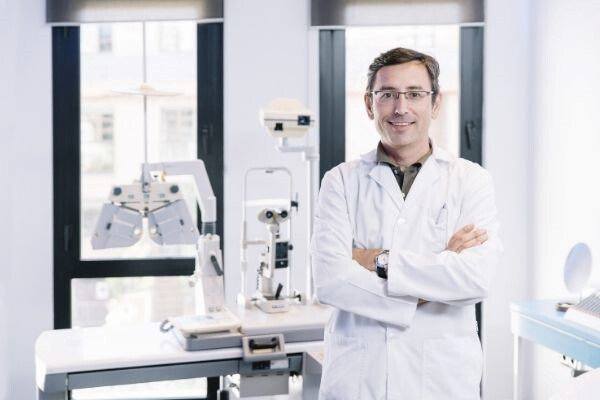Things Your Eye Doctor Wishes You Knew

The 'eyes' have it! Do you take proper care of your eye health? Maintaining proper eye care is essential at all ages, but especially important once you get past age 50. Your eye doctor wishes you knew a few things ... take a moment and find out what they want you to know.
When it comes to taking care of our vision and eye health, many fall short of what most eye doctors recommend. The fact is most people don't discuss eye care and health like we do about other health issues.
Maybe you're not convinced that eye health is essential. Having regular eye exams after age 50 is as important as when you were younger, if not more so. The National Institutes of Health say that some of the more serious age-related eye diseases—like glaucoma, age-related macular degeneration (AMD), and diabetic eye disease—often have no warning signs or symptoms in their early stages.
Scientists anticipate the number of people with age-related eye problems to rise dramatically due to an ever-growing aging population.
Get Eye Exams More Often
Frequent eye exams are essential for more than just your eye health. An eye exam can help you monitor not only any vision changes but also your overall physical health.
There are many health problems your eye doctor may spot. These include:
- Diabetes - Vision issues might be caused by diabetes. Tiny blood vessels in your retina can indicate health problems caused by untreated - and perhaps undiagnosed diabetes.
- Cancer - Many different cancers can be detected when an eye doctor exams you during a detailed eye exam.
- Brain Tumor - Swelling in the brain places pressure near the back of the eye might and can be caused by a tumor.
There are several other health problems that a good eye doctor can spot.
Don't forget your vision. Your vision quality can also change throughout your life, so regular eye exams help you keep your prescription up to date.
The Dangers of Blue Light
Eye doctors know the side effects of blue light from electronics all too well, but everyday electronics users may not. Blue light can cause eye strain and irritation after long periods of looking at electronics and screens. Eye doctors recommend taking a break from any electronics to avoid disturbing your sleep, especially right before bed.
Wear Protective Eyewear
Whether it's sunglasses to protect your eyes from the sun or goggles when you're working with chemicals, you should be wearing protective eyewear more often.
Think about your eye doctor recommending sunglasses like your dermatologist recommending wearing sunscreen: you should wear sunglasses during all seasons, not just in the summer. And you should wear protective eyewear such as goggles anytime you encounter chemicals, debris, and other hazardous conditions, such as when you're on a construction site or in a lab.
Which Eye Doctor to See
The care you need will determine which type of eye doctor to see. Not every eye doctor is the same — there are different types of eye doctors with all ranges of education and specialties.
Ophthalmology is a branch of medicine and surgery. Ophthalmologists are some of the more experienced eye doctors qualified to perform specific treatments and surgeries. These are medical doctors, not someone trained to check your vision.
Optometrists will have an OD after their names (not MD or DO). They earn a Doctor of Optometry degree. Knowing the differences between the various levels of eye doctors can help you get the treatment you need more quickly.
Vision and Long-Term Health Care
Older people living in long-term care facilities have many challenges, but those with vision impairment have even more problems that need to be addressed. Those with vision issues are more likely to have issues with daily activities like dressing and feeding themselves and increased rates of depression, social isolation, and falls.
If an older family member either living at home or in a facility has not seen an eye doctor, be sure to get them there for an exam.
Eye doctors are there to help you achieve better vision and eye health. If you have any questions about caring for your eyes, ask your local eye doctor. They'll be happy to provide you with the right advice. Protect your eye health and get the care you need by understanding what your eye doctor wishes you knew.


